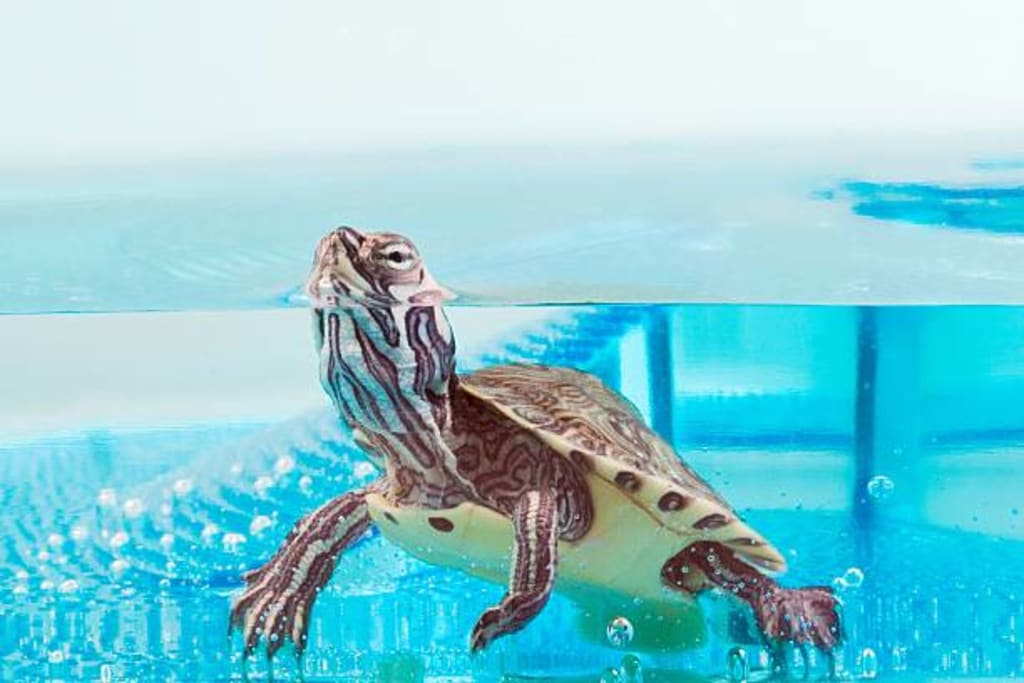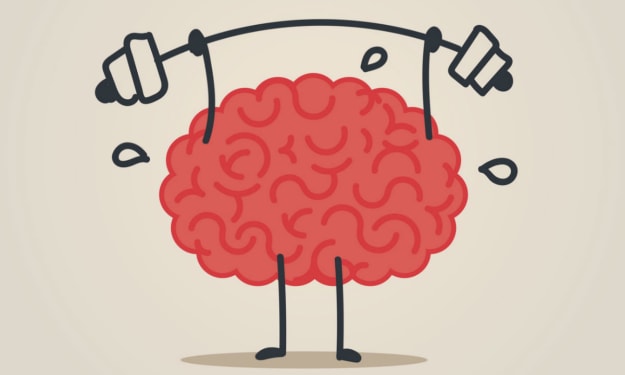50 Small Things You Can Do to Save the Turtles (and the Planet)
Seen a lot in the news recently about the waste crisis? Not sure where to begin? Try this article.

The media has been recently flooded with campaigns and adverts all aimed towards reducing our waste and plastic consumption, and rightly so. With plastic production at its peak, millions of tonnes of single-use plastic items are being created and dumped. This is causing species numbers to decline, with turtles choking on plastic bags, dolphins dying from plastic rings, and many animals consuming the harmful products that end up in the ocean.
The amount of waste we create is staggering, and unless we start making changes in our everyday lives, the effects will be non-reversible. It can be overwhelming though knowing where to start or what to do, so here are 50 things you can start doing to reduce your waste consumption and help the planet.
A note for the reader: There are specific brands mentioned below and sites listed for further reading. None of the comments are sponsored, nor are any of the links affiliated. I just think they're really good.
Top Tips
1. Divide it up into sections. It can seem like a momentous task making so many changes, but doing it in sections can make the transition much easier. I first started with my skincare, then bathroom, then cleaning products, then food. You also know then that you have all your areas covered; i.e. when I walk into my bathroom, I know pretty much all my products are eco-friendly.
2. Don't throw out non-eco friendly items. You may as well use up what you have in your house already; if you throw it out, that'll be more wasteful. Check your cupboards and shelves to see what you have, and when you run low, switch it for an eco-friendly alternative.
3. Ask around. Not sure what products work or what's any good? Post on Facebook, join eco groups, ask friends, and look for recommendations. If you know, for example, you're looking for a good floor cleaner, but not sure where to look, ask on Facebook—you never know if a friend is already using a product that you could then use.
4. Try out apps. There are apps to help reduce your waste. Olio is an app that let's you post unwanted food/cupboard goods for free, you just have to go and collect from the person, rather than them throwing it away. TooGoodToGo is also a great app that lets you buy leftover food from restaurants and carvery places that they'd otherwise throw out.
5. Research companies. If there isn't a recycle logo on the product, do a quick Google to look into a company's ethics on plastic and waste consumption. You can find out about any schemes or campaigns they're involved in and how you buying their products impacts this.
Skincare
6. Avoid products with micro beads (often found in washes and exfoliators) as they are harmful to the environment.
7. Check out Lush and the Body Shop's return schemes. Return five or six clean pots to Lush and you get a free face mask. The Body Shop has also released a similar scheme recently, so now members can receive a £5 voucher for returning empty products. They then reuse or recycle the packaging rather than dumping it.
8. Go for recycled/recyclable packaging. If there is no recycle logo and the company has no statement, avoid them.
9. Just check out Lush. Not to be biased, but they're cruelty-free, vegan in most of their products, use non-harmful products, recycle and reuse their packaging, offer recyclable bags and reusable totes, use eco-friendly packaging for online orders, and have a naked packaging scheme, as well as being involved in many campaigns to help the environment and animals.
10. Try biodegradable wipes. There are loads on sites such as Amazon, and Simple has just released biodegradable wipes too.
11. Buy washable pads. Brands such as Face Halo offer pads where you can remove makeup with either just water, or water and your face wash.
12. Try a bamboo toothbrush rather than plastic ones.
Cleaning Products
13. Look for eco-friendly brands, such as Method and Ecover.
14. Check the ingredients and what logos are present.
15. Find recyclable/biodegradable kitchen roll/toilet roll, etc.
16. Try a service such as Smol. They deliver washing tablets to your door in a subscription service based on factors such as the amount of washes you do and skin sensitivity. You can try nine washes for just £1 (Note: I believe they start charging you a subscription after the trial, so just cancel before if you don't want to). A subscription is as little as £3.95 for 56 days (this is the one I have).
17. Wash your cloths. Either throw your cloths in the washing machine (provided it is safe to do so), or hand wash and hang them out to dry rather than buying multiple cloths and cleaning wipes. It helps save you money too.
Straws
18. Tell the bartender you don't want a plastic straw.
19. Buy metal/glass straws.
20. Ask if paper straws are available.
21. Just don't use one. Do you really need a straw for your drink? Of course, use them if needed for medical purposes though.
Food
22. Check the packaging and how much is recyclable.
23. There are shops where you can take your own jars/packaging for things like lentils and sugar, so shop around and see what's near you.
24. If you shop online, opt for no plastic bags.
25. Try online shops such as the Ethical Superstore. All their packaging is eco-friendly and they have a lot of vegan/gluten free options.
26. Don't use plastic bags for your fruits and vegetables. They also can make them slightly heavier and cost more, so you can save money too.
27. See what deals restaurants have and any schemes they're involved in, such as carvery places on TooGoodToGo.
28. Try vegan options. A lot of meat/dairy production contributes to environmental impact, so maybe once a week make a vegan meal, or if you're going out to eat ask for the vegan options.
Transport
29. Some places now have electric buses that don't produce emissions. See if they're available in your area.
30. Walk/cycle to places that are within a reasonable distance for yourself.
Fashion
31. Festival season is approaching, so see what companies offer biodegradable glitter. There are loads available on sites such as Etsy and Depop.
32. Instead of throwing clothes out, why not donate them, sell them on Depop, or turn them into things like wash cloths to clean around the house?
33. See what your clothing is made out of. You can now buy things like bamboo socks to help reduce clothing waste.
35. Buy from eco-friendly shops/boutiques rather than big chains where you can. You can often find essentials like socks and underwear, as well as handmade clothes and jewellery.
Other Things
36. See what's happening nearby. Are there campaigns/cleanups you could get involved in? Any volunteering opportunities?
37. Try reserving items rather than always ordering online; this means, rather than packaging it and sending it to you, you can pick it up from the store.
38. Ask your work/school what steps could be taken to reduce waste consumption.
39. If you live near a beach, why not go with some friends and collect the waste that's left on the beach? Make a day of it, do something fun afterwards too.
40. If you work in the food industry, see what local shelters are around and offer them the leftovers.
41. Buy a reusable bottle. They come in various sizes, so it's easy to find one suitable to your lifestyle, and they don't have to be expensive.
42. Tell your bartender you don't want a napkin for your drink.
43. See if your favourite drinks come in cans rather than plastic bottles. Coca-Cola is a huge brand that is readily available in can form, and companies like Innocent and San Pellegrino are also always available in cans. The more companies and people that switch, the less plastic bottles in circulation.
44. Stick to one cup on a night out. Tell them they can reuse your glass/cup. This means less washes in the glass wash overall, less cleaning product used, and less water/electricity used.
45. Forgot your bag to the shop? Use your bag if you have one. If you're carrying a handbag/backpack already, put your items in their rather than getting another bag and carrying that too.
46. See what your friends are doing. Have they got a new method you haven't tried yet? Heard of a scheme you've not yet seen? Help each other out in reducing waste.
47. Don't litter. Put your waste in the appropriate bins.
48. Bring cutlery with you rather than using plastic cutlery.
49. Always check what your product is made of. Is it biodegradable? Eco-friendly? In a lot of packaging? Is there something you already have that you can use instead? Do you really need the item?
50. Stay up to date. Read articles, watch the news, and follow charities to see how the plastic crisis is evolving and how efforts are helping. They'll always have research, information, and guidance available.
Here are some useful resources in case you want to read more:
About the Creator
Paige Roden
Twenty-five year old postgraduate trying to navigate some strong feelings about certain topics. Huge mental health advocate and lover of horror films






Comments
There are no comments for this story
Be the first to respond and start the conversation.